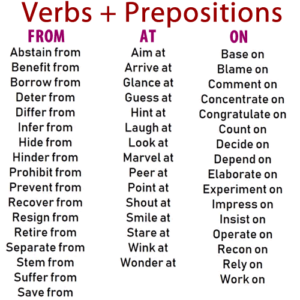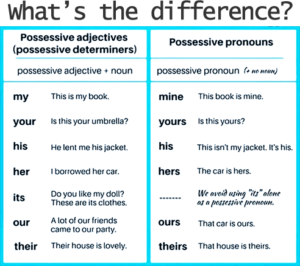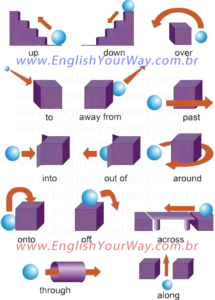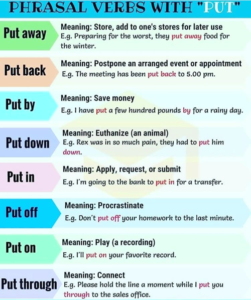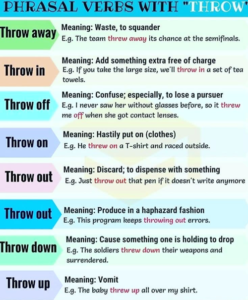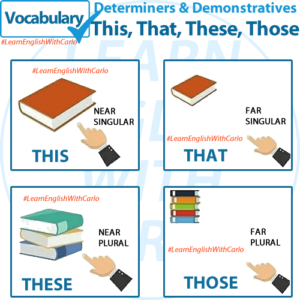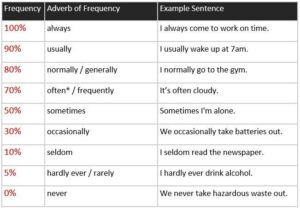Verbs & Prepositions Some verbs are usually followed by prepositions before the object of the verb. These are called dependent prepositions and they are followed by a noun or a gerund (‘ing’ form). For is the dependent preposition for ‘wait’ We can use other prepositions with ‘wait’ – e.g. He waited at the bus stop – but ‘for’ …
Category: GRAMMAR
Permanent link to this article: https://englishyourway.com.br/verbs-with-prepositions/
Jun 26
VOCABULARY – Units for counting UNCOUNTABLE nouns
Some nouns are UNCOUNTABLE. That means that they don’t have a plural form and cannot be used with an indefinite article. The most common uncountable nouns are liquids, but there are others too.So, how do we quantify an uncountable noun? We give it a unit! *NOTE: There are time when you can order something in …
Permanent link to this article: https://englishyourway.com.br/vocabulary-units-for-counting-uncountable-nouns/
Jun 20
Possessive Adjectives vs. Possessive Pronouns
It’s easy to confuse these two sets of words because they are very similar but perform different functions. Possessive Adjectives Definition: Possessive adjectives are words that modify nouns to show possession or ownership. List of Possessive Adjectives: Examples: Usage: Possessive Pronouns Definition: Possessive pronouns are words that replace nouns to indicate ownership or possession directly. …
Permanent link to this article: https://englishyourway.com.br/difference-between-possessive-adjectives-and-possessive-pronouns/
Jun 18
Prepositions of Movement
Prepositions of movement describe the direction or movement of someone or something. They are crucial for providing clarity in communication. Let’s explore some common prepositions of movement and how to use them effectively. This graphic shows some of the more common prepositions of movement. Look below for definitions and examples. 1. Up Definition: Moving from …
Permanent link to this article: https://englishyourway.com.br/prepositions-of-movement-guide/
Jun 17
PHRASAL VERBS with “put”
A phrasal verb is a combination of a verb and an adverb or preposition, for example ‘look up’ or ‘look after’, which together have a particular meaning which is different from the verb alone. Here are the definitions and examples for each of the phrasal verbs listed: 1. Put away– Definition: To place something in its appropriate location; to …
Permanent link to this article: https://englishyourway.com.br/phrasal-verbs-with-put/
Jun 13
PHRASAL VERBS with “throw”
A phrasal verb is a combination of a verb and an adverb or preposition, for example ‘look up’ or ‘look after’, which together have a particular meaning which is different from the verb alone. Phrasal verbs with “throw” have a range of meanings depending on the preposition or adverb they are paired with. Here are the definitions and examples …
Permanent link to this article: https://englishyourway.com.br/phrasal-verbs-with-throw/
Jun 12
IDIOM OF THE DAY – “to make ends meet”
Idioms are expressions whose meanings are different from the individual words and therefore aren’t meant to be taken literally. They exist in most languages and are usually the result of usage over a long period of time. If you have any questions or doubts, please ask in the comments or send me a private message. …
Permanent link to this article: https://englishyourway.com.br/idiom-to-make-ends-meet/
Permanent link to this article: https://englishyourway.com.br/grammar-this-that-these-those/
May 26
Adverbs of Frequency
Have you ever wondered how to tell someone how often you do something? There are special words in English that help us do just that. They’re called adverbs of frequency, and they’re pretty cool! Let’s learn more about them together. What are Adverbs of Frequency? Adverbs of frequency are words that tell us how often …
Permanent link to this article: https://englishyourway.com.br/adverbs-of-frequency/
Permanent link to this article: https://englishyourway.com.br/grammar-capitlaization-rules-quando-usar-a-letra-maiuscula/

